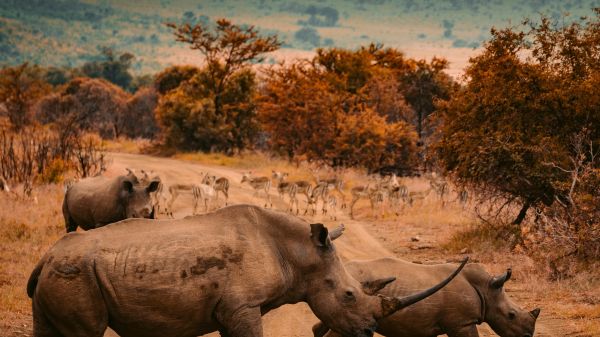Project Planning for Wildlife Conservation

Previously called Strategy Development for Wildlife Conservation, in this online training course, you will learn skills to help you create effective strategies for conservation projects of any type or size. The course covers how to assess the current situation you are trying to change, plan the impact you want to achieve, plan the work you will carry out to achieve that impact, and adapt your strategy to your needs and situation.
The course is run over 6 weeks, with an average of 4 hours of learning per week. The training combines weekly live teaching sessions and pre-recorded training videos to work from in your own time.
Why do this course?
- Career starters: Improve your chances of getting your dream conservation job by getting a qualification in a required skill for many conservation positions.
- Practitioners: Learn how to create stronger conservation strategies that achieve more impact.
What will I learn?
Previously called Strategy Development for Wildlife Conservation, this training course has been developed with input from experienced practitioners to help conservationists create effective strategies for conservation projects of any type or size.
You will learn how to:
- Assess the current situation, to better understand and document the situation you are trying to change.
- Plan the impact you want to achieve.
- Plan the work you will carry out to achieve that impact.
- Adapt your strategy to your needs and situation.
What will my learning experience be like?
In this online training course, we do our best to recreate the best of the interactive and supportive classroom environment, while offering you the flexibility to learn when and where you want. You will be supported throughout by our expert trainers via Zoom and WildHub.
The course is run over 6 weeks, with an average of 4 hours of learning per week. The training combines weekly live teaching sessions and pre-recorded training videos to work from in your own time.
Where can I find out more?
The next online training course in Project Planning for Wildlife Conservation begins on the 20th September 2023. Find out more and sign up >
Who is providing this training?
WildTeam UK is a not-for-profit charity that designs and delivers training in key skills that help conservationists increase their impact. To date, we have trained nearly 2,000 conservationists from 118 countries.
What people say about the training
"The...course was fantastic. It has…already been a big help with my current project.” Brittany Butler, Conservation Team Leader, Coastal Dry Tropics Landcare Inc.
“I loved how participatory this training was – it really helped me learn!” Anna Heath, Programme and Partner Manager, Synchronicity Earth
"I really enjoyed that this training was flexible and worked with my schedule. It made learning a new skill like this much easier!" Aurora Hood, Plover Rovers
“I find the...approach really user-friendly. The training has given me the skills and confidence to embark on strategy development for wildlife conservation of any sized project.” Dr Nikki Tagg, Head of Conservation, Born Free Foundation
“Having been researching various methods for strategy development, I was excited to come across the...course - I wasn’t disappointed. There was a great balance between theory and the opportunity to apply what you were learning to real-world examples (including our own projects). I have already started thinking about how to use [these] processes in my work.” Heather Gurd, Social Impact Manager, Marwell Zoo
“Very relevant for running a conservation project. The mix of personal study and online group sessions made the courses very flexible, productive and enjoyable. Would thoroughly recommend!” Rachel Cripps, Red Squirrel Field Officer, Lancashire Wildlife Trust
“Learning this way of structuring the strategy development will help me break down my work plans into more manageable tasks.” Alexa Piggott, Research Assistant, Oregon State University

